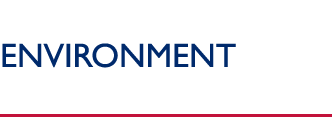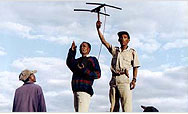You are here » Home » Environment » Water » Community Water and Sanitation Facility: A Cities Alliance Initiative
Community Water and Sanitation Facility: A Cities Alliance Initiative
In February 2003 the United States launched the Community Water and Sanitation Facility as a Global Development Alliance (GDA), public-private partnership, with the multi-donor supported Cities Alliance to expand water and sanitation services in urban slums. The Facility works towards achieving the objectives of Target 11 of the Millennium Development Goal Number 7 to improve water and sanitation and significantly improve the lives of at least 100 million slum dwellers by 2020. The U.S. launched the Facility with seed funding of $2 million and technical assistance from other agency programs.
The Community Water and Sanitation Facility supports local authorities and their partners in working through public-private partnerships to expand water and sanitation services to slum communities, fund community endorsed construction, promote risk-sharing and innovative financing to mobilize funding resources.
Cities Alliance is a donor coalition committed to the vision, “Cities Without Slums” and has 14 contributing members, including Brazil, Canada, France, Italy, Japan, Germany, the Netherlands, Nigeria, Norway, South Africa, Sweden, the United States, the United Kingdom, the Asian Development Bank, the United Nations Environment Program, UN-Habitat and the World Bank, plus the four major global municipal organizations under United Cities and Local Government (UCGL).
Public-Private Partnerships Are Essential to Bringing Water and Sanitation Services to Slum Communities
USAID-sponsored Community Water and Sanitation Facility (CWSF) activities underscore and promote the importance of public-private partnerships to achieve sustainable provision of water and sanitation services in slum communities. Several USAID country missions are working with partners to broker activities for Facility support.
USAID-Sponsored Projects
USAID/South Africa has worked with the British Department for International Development (DFID) and the Municipal Infrastructure Investment Unit (MIIU), a non-profit corporation funded by the Government of South Africa, to increase access to water and sanitation services for over 1 million disadvantaged persons in five municipalities. The partners are using the CWSF to support water system upgrades, promote local capital investment, and better managed services for the urban poor. USAID has provided use of its innovative Development Credit Authority (DCA) credit instrument to facilitate local lenders making funds available to these municipalities. With an expected leverage of over 36:1, the Facility contribution of $300,000 should generate $16,675,000 in partner contributions. In a related municipal finance partnership, USAID and private sector partner, Evensen Dodge, are assisting the Cities of Tshwane and Durban to obtain access to up to $1 billion over the next three years to finance infrastructure investments such as in water services.
USAID/Mozambique is now supporting local governance programs which may results in CWSF projects in six cities and a proposed UN-HABITAT initiative to address interlinked problems of poor access to safe drinking water and efficient waste management in Quelimane City. The goal being to promote participatory development strategies and implementation of innovative tools resulting in improved water and sanitation solutions.
In India, USAID and Shelter Associates, a community based organization representing slum dwellers in Sangli, constructed community toilet facilities for the use of 25,000 persons. The project objectives were to:
- develop community-level toilet construction and management plans in consultation with local government authorities,
- to assist the municipality in implementing the community-level plans and
- to begin the preparatory work for a citywide slum upgrading strategy.
The Facility was asked to fund technical assistance and construction materials for public toilets. Added resources were provided by private sector and community partners. Upcoming CWSF efforts are in development, where USAID/India will partner with local stakeholders and the Government of India in Bangalore and Agra to address long-term city wide infrastructure planning, delivery of basic services and test a pilot “willingness-to-pay” demonstration program. The pilot will showcase how low income communities can acquire reliable services when community residents pay for individual connection charges and monthly water and sewerage tariffs. This win-win mechanism has enhanced revenues for the utilities thereby enabling it to improve service quality to slum residents.
USAID/Panama has been working with local stakeholders in Panama City to plan a CWSF program to address public health concerns and bring sewerage lines and treatment facilities to a marginalized community of 12,500 people in the Panama Canal watershed. Through a series of community meetings, participants identified how toddlers and women were disproportionately affected by skin and gastrointestinal problems due to the lack of sanitation services. In response to the community’s needs, USAID through the CWSF is helping to broker a public-private alliance with the Ministry of Health, Panama Canal Authority, the National Institute for Water and Sanitation, the Municipality of Panama, local business and community residents to construct a affordable sewerage system. This partnership will help protect the Panama Canal watershed and tap into local and international capital financing for scaling up the intervention into other communities in the watershed.
Future Water Partnerships to Deliver Services to Urban Poor
USAID’s Urban Programs Team is now actively work with other USAID/Washington programs and various Field Missions throughout the world to initiate new CWSF and slum upgrading projects in cooperation with this Facility. For example, USAID is now working with local stakeholders to plan and consider the development of future CWSF projects in Nepal, Ecuador, Jamaica, Mozambique, Angola and Iraq.
Back to Top ^
|


